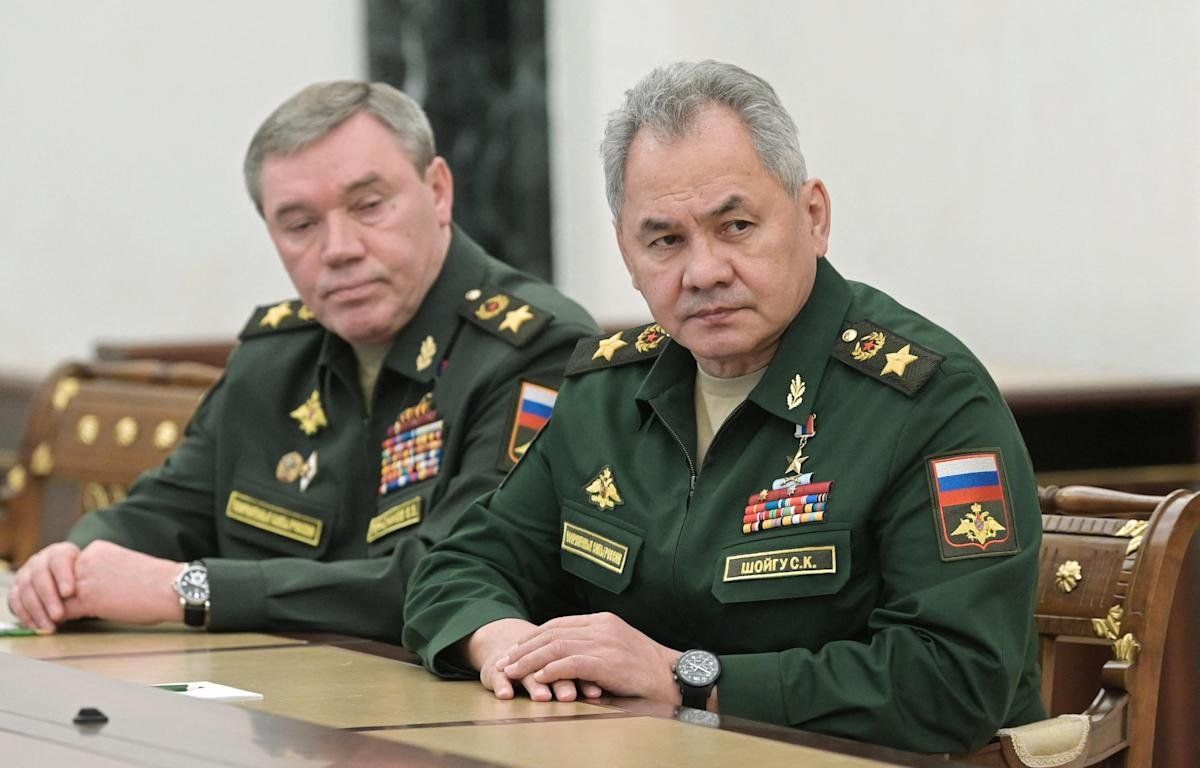The powerful Russian defence minister Sergei Shoigu (R) and General Valery Gerasimov, the chief of the general staff of Russia armed forces
Two top Russian generals have been arrested on charges that they signed away military land to civilian owners in exchange for bribes.
Evidently this sort of dirty side hustle has become a trend lately in and around Moscow, and the Kremlin is looking to crack down.
But it’s also worth noting that the two generals were until recently in charge of Moscow’s air defenses. As Ukrainian drones continue to penetrate deep into Russian territory – including a number of reported attacks on Moscow itself – the Kremlin may be making an example of these two for a reason.
After all, corruption is widespread in Putin’s system — but getting busted so publicly is a signal that you’ve fallen out of favor. (Falling out of windows is sometimes the next phase of the downfall, but we’ll put a floor under these metaphors here.)
